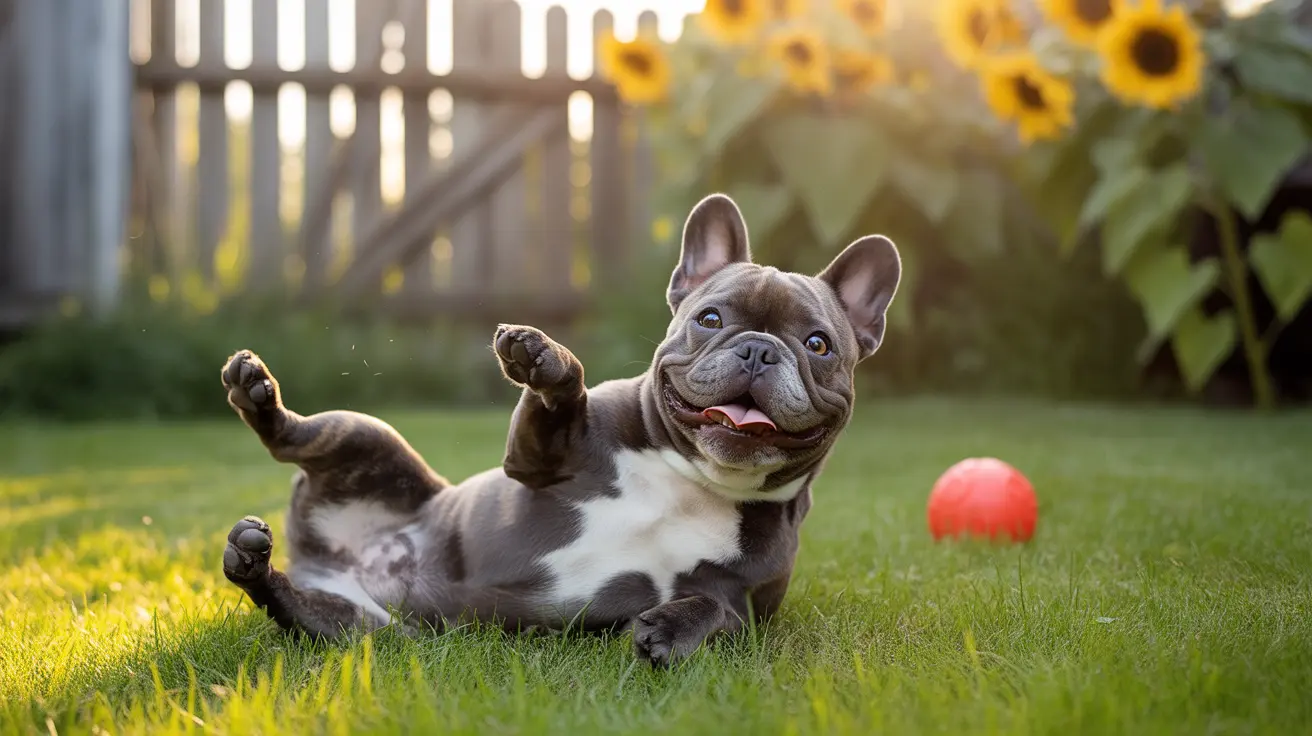When your dog starts munching on grass while feeling under the weather, it's natural to wonder whether you should allow this behavior or intervene. As a common concern among pet owners, understanding the implications of grass-eating in sick dogs can help you make informed decisions about your pet's health and safety.
In this comprehensive guide, we'll explore the reasons behind this behavior, potential risks, and when you should be concerned about your dog eating grass during illness.
Understanding Why Dogs Eat Grass When Sick
Contrary to popular belief, dogs don't always eat grass because they're feeling sick. Research shows that less than 25% of dogs actually vomit after eating grass, and only 10% show signs of illness beforehand. This suggests that grass-eating isn't primarily a self-medicating behavior.
Several factors can drive this natural behavior:
- Natural dietary instinct
- Enjoyment of taste and texture
- Need for additional fiber
- Potential digestive benefits
- Boredom or stress relief
Safety Considerations for Sick Dogs Eating Grass
While grass-eating is generally considered normal behavior, there are important safety factors to consider, especially when your dog is already feeling unwell:
Potential Risks
- Exposure to harmful lawn chemicals
- Ingestion of parasites or bacteria
- Possible intestinal blockages
- Aggravation of existing digestive issues
Safe Alternatives to Grass
Instead of letting your sick dog eat grass, consider these safer alternatives:
- Specially grown pet grass or wheatgrass
- Veterinarian-approved digestive supplements
- High-fiber dog foods
- Natural dietary additions recommended by your vet
When to Stop Your Dog from Eating Grass
There are specific situations when you should prevent your sick dog from eating grass:
- If the lawn has been treated with chemicals
- When your dog is showing signs of excessive consumption
- If grass-eating is accompanied by severe lethargy or vomiting
- When your pet has a known digestive condition
Professional Veterinary Guidance
Consult your veterinarian if you notice:
- Sudden increase in grass consumption
- Persistent vomiting or diarrhea
- Loss of appetite
- Unusual lethargy or behavior changes
Frequently Asked Questions
Why do dogs eat grass, and is it safe for them?
Dogs eat grass for various reasons, including taste preference and dietary instinct. While generally safe, it's important to ensure the grass is free from chemicals and parasites.
Can I let my dog eat grass if they have an upset stomach?
While some dogs may naturally seek out grass when feeling unwell, it's better to consult your veterinarian for proper treatment rather than relying on grass consumption as a remedy.
How can I stop my dog from eating grass without harming them?
Redirect their attention with toys or treats, ensure they get adequate exercise, and consider providing safe alternatives like pet grass or dietary fiber supplements.
What are the risks if my dog eats grass treated with pesticides or herbicides?
Treated grass can cause serious poisoning symptoms, including vomiting, diarrhea, seizures, and other severe health issues. Always prevent access to chemically treated lawns.
Is eating grass a sign of nutritional deficiency in dogs?
While grass-eating isn't always linked to nutritional deficiencies, sudden increases in this behavior warrant a veterinary check-up to rule out dietary issues or other health concerns.






